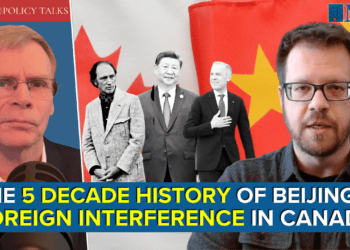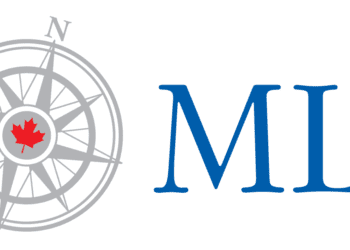Writing in the Globe and Mail, Macdonald-Laurier Institute Managing Director Brian Lee Crowley says it’s time for provincial governments to re-evaluate how they use resource revenue at budget time.
The problem, says Crowley, is that resource revenue is subject to huge and unpredictable swings. That’s why he recommends governments start using them as capital, rather than income.
By Brian Lee Crowley, Jan. 9, 2015
You can’t say you weren’t warned.
That’s a message that should be posted on billboards opposite the premier’s office in Edmonton, St. John’s and various other provincial capitals where falling energy prices have devastated government budgets.
Those of us who care about such things have been repeating for years the wisdom best summed up by former Alberta Treasurer Jim Dinning: “non-renewable natural resource revenues are non-reliable revenues.”
When your provincial budget is the attic in a house of cards, the first breath of contrary wind brings the whole structure tumbling down. I remember when a 10 cent difference in the price of natural gas meant a swing of $142m in Alberta’s revenues. The price of that commodity has of course gyrated all over the place in the last 20 years, but mostly in a direction that has caused apoplexy at budget time.
The volatility of natural resource revenues is far less interesting than what might be done about them. On the other hand, if you can’t get policymakers to grasp the fragility of their budgets, you will never get them to take the hard decisions necessary to put things on a sounder footing.
For clarity’s sake, let’s recognise right away that the problem isn’t with income, sales and business taxes. Those too are subject to ups and downs, but a diversified economy will usually have sectors that are thriving and others that are declining. Taxes that apply to the broad-based and infinitely renewable activities of the whole population (like working and consuming) are the proper foundation for public finances.
The problem arises when a major part of your government income is derived from the sale of natural resources owned by the state. Because it is subject to huge and unpredictable price swings, the biggest risk in managing resource wealth is treating the money as if it is a reliable and stable revenue stream that will last forever. It isn’t.
Big price jumps in good years create huge expectations in the population and within the government. Alison Redford got into such trouble in Alberta partly because she spent as if high priced oil was a permanent fact of life, so a few deficits here and there, even on a startlingly large scale, didn’t matter. But Alberta’s been there before. Ralph Klein came to power in large part because high oil and gas revenues did what they always do: create the demand in the public for more spending. People see the money flowing in and they want a piece of the action. His predecessor had embraced that demand with gusto. Someone gets the job of cleaning up the mess. Be careful what you wish for Jim Prentice.
The mess would not be created in the first place, though, if governments got that a rise in natural resource royalties is no foundation for ongoing spending programs. If you make a commitment this year to hiring civil servants and promise people money year after year for new programs, those commitments stand even when the resource revenues dive — unless you make painful spending cuts that upset public servants and disrupt voters’ expectations.
That brings us to the alternative. There are a couple, but all take as their starting point that non-renewable natural resource revenues aren’t really revenues like income and sales taxes. They result from the sale of a valuable asset that, once sold, is gone forever. Royalty money is thus capital, not income.
Capital should be preserved and invested, not spent on current consumption.
One solution then is what Norway has done. They put their royalty revenues in a sovereign wealth fund, which they invest just as Canada does with its CPP premiums. Governments can safely spend the income from the fund each year, and the fund itself confers benefits not just on those alive today, but all present and future citizens, all of whom have an ownership stake in natural resources.
A variation on this theme is to estimate what the minimum revenue is that a government can reasonably expect to realise from its royalties, year after year, regardless of price movements. It has to be a specific dollar amount, not a percentage of all such revenues. You can then fairly safely spend that amount and squirrel the rest away in the investment fund.
Finally you can invest the money in genuine infrastructure that’s been subjected to a tough cost-benefit analysis, or you can pay down public debt.
Anything else makes the provincial budget an annual visit with a one-armed bandit. Very occasionally you win, but mostly not.
Brian Lee Crowley (twitter.com/brianleecrowley) is the Managing Director of the Macdonald-Laurier Institute, an independent non-partisan public policy think tank in Ottawa: www.macdonaldlaurier.ca.




